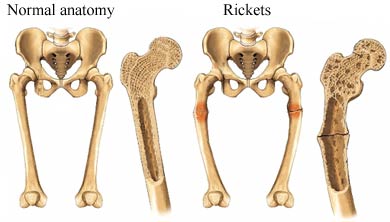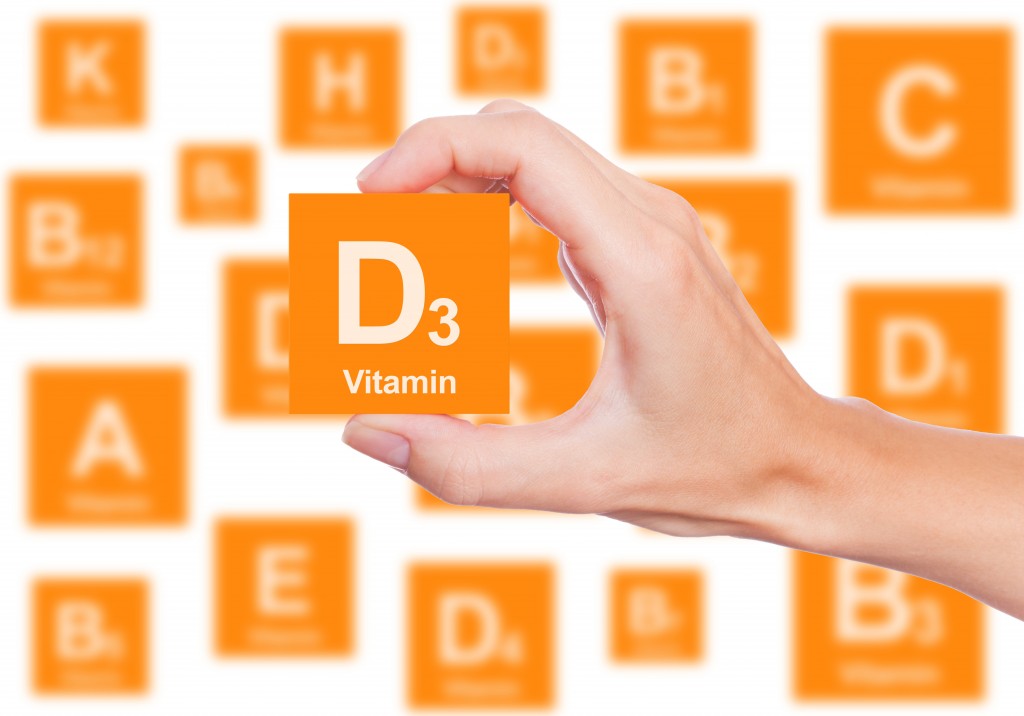Rickets disease is on the rise in the UK. Serious bone deformities can arise in children that develop this condition and the government are dragging their feet over how to deal with this major health issue.
What causes Rickets?
Rickets disease develops when a child is not getting enough Vitamin D and calcium. Calcium deficiency is not the issue here though as most people in the UK are getting enough in their diets, it is a lack of vitamin D that is the issue.
As without Vitamin D, calcium cannot be absorbed so that it can get into the bones to keep them strong and to the other places it is needed such as the heart, muscles, and to create properly functioning nerves and for blood to clot.
So the less vitamin D you have, the less calcium your body can actually use even if you are getting the RDI (Recommended Daily Intake) of calcium.
Insufficiency & Deficiency Explained
Rickets had almost been eradicated by the end of the Second World War, but new statistics from a Gaurdian round table expert meeting suggest that almost 40% of young children in Britain now have below the threshold of vitamin D recommended as optimal referred to as a “deficiency”, and as many as 80% in the population have low levels which is termed as having an “insufficiency”.
Statistics from this meeting also covered that most teenagers have below the optimal level of vitamin D.
One of the doctors from the meeting commented that;
“What that all means is – a large proportion, even the majority, of the population have vitamin D insufficiency. That’s a very big problem.”
One other participant discussed the recently published data;
“A group in Oxford have reviewed 50 years’ worth of figures, and the graph is going straight up,”
going on to say,
“There are problems of definition with this issue, but across the spectrum there’s a big problem and it’s growing.”

Current Guidelines Need Updating & Fast
At present, children from 6 months old are advised to be given vitamin D supplements but after hearing this news some doctors now feel vitamin D supplements should be given from 6 weeks of age.
The chief medical officer Prof Dame Sally Davies made a statement last October declaring that a call to action would be taking place to address the seriousness of the vitamin D insufficiency and deficiency issue. But still to date no headway has yet been made in issuing proper guidelines on how to deal with a problem that has led to a four fold increase in the number of cases of the bone disease rickets in recent years.
Stop Being Scared of the Sun
Rickets should not only be seen as a lack of supplementation, and hoping that just by supplementing we can fix the entire problem. What would help reduce many cases of vitamin D deficiency, if used correctly alongside supplementation, is to allow children and babies to actually get some sun without being slathered in factor 50 sunscreen every time the time the sun pops its beautiful head out.
After all, the sun is the best way to allow your body to manufacture the most natural form of vitamin D, which is vitamin D3, and we cannot make any vitamin D when we have sunscreen on our skin.
Is it any wonder we have seen rickets cases rise when we are being told to cover up in the sun to avoid skin cancer devolving? New research has even found that low levels of vitamin D is a major risk factor for developing melanoma in the first place.
There is also evidence to suggest certain types of sunscreens can actually cause skin cancer to develop too. This came from a study carried out by U.S. government scientists where it was suggested that retinyl palmitate, a synthetic form of vitamin A found in many commercial sunscreens, may speed the development of skin tumors and lesions when applied to the skin in the presence of sunlight
Don’t Be a Sitting Duck
So don’t wait for your doctor or the government to fix the problem by issuing new guidelines. If you are concerned about your baby or child’s bone development consult your doctor immediately and request a vitamin D blood test to rule out rickets.
Also, if you were vitamin D deficient in your pregnancy, or did not take any vitamin D in your pregnancy then there is a chance your baby will have low levels of vitamin D too when he or she is born. And if you are breastfeeding with low levels of vitamin D in your body, it would be a good idea to start supplementing yourself to ensure you baby is not deficient as the vitamin D will be passed on to your child through the breast milk.
A good quality vitamin D3 supplement and a little sun, when it is out, around 5-10 minutes a day on your baby and/or child’s naked skin will help to ensure your baby is building up good levels of vitamin D3 to prevent and even treat rickets disease.
The moment your child’s skin starts to turn a little pink then you know he has had enough and its time to get out of the sun to prevent over doing it and damaging their precious skin.
